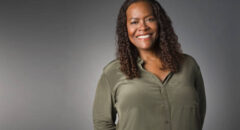
The technology surrounding family planning gets more and more advanced by the year. Oöcyte cryopreservation, otherwise known as egg freezing, is quickly becoming one of the most common family planning procedures women are considering these days. Whether it be because they want to maximize their chance at a healthy baby, give themselves more time to put their career first, or they simply just want to have some in storage for when they meet the perfect father, women are taking more control of their reproductive options.
According to a study curated by the American Society of Reproductive Medicine, 85 percent of egg freezing procedures were elective and have increased by 700 percent since 2009.
Women as young as 27 have begun to consider this option. The American Society of Reproductive Medicine refers to this as “social egg freezing,” where young women are exercising their options to have an insurance policy to a diminishing fertility situation down the road. Here are some things to consider:
1. How invasive is it?
Egg freezing is essentially the first phase of in vitro fertilization. According to endocrinologist and infertility specialist, Dr. Jaime Knopman, “You are going to get anesthesia and there will be a needle puncturing your vaginal wall. That has a risk for infection, but as far as surgical procedures go, it’s a low-risk one.”
After the egg production and stimulating hormone injection plan is complete, the 10-minute egg retrieval process takes place. Under a mild dose of anesthesia, a needle-like suction device is used to puncture the ovarian follicles to extract the eggs. Think of it like drawing blood. It’s essentially the same procedure just in a different part of the body.
RELATED: ‘Egg Freezing’: Hope Over Hype
2. What are the potential side effects of the hormone treatments?
Moodiness and bloating are the most commonly reported side effects of the hormones.
According to Knopman, “I’ve had patients tell me they feel amazing and awesome. I’ve had people say they feel great and others say they feel tired. In general, the emotions are steady, and I don’t see patients having a crazy, emotional response.”
As surprising as it might seem, the hormones don’t tend to cause much, if any, disturbance in your normal routine of how you feel.
3. What are the chances of it working?
According to the American Society for Reproductive Medicine, a single frozen egg has anywhere between a two to 12 percent chance of becoming a successful live birth. The success rate fluctuates depending on several factors, some of which include the health and quality of the partner’s sperm as well as the health and age of the woman attempting to get pregnant.
To put it into perspective, according to the journal Fertility Sterility, a healthy 30-year-old woman with two to six eggs thawed has a nine to 24 percent chance of successfully getting pregnant, while for a 40-year-old woman, those numbers drop to about five to 13 percent.

RELATED: What Is IVF?
4. Is a 30-year-old frozen egg healthier than a naturally fertilized 40-year-old egg?
It’s just a testament to how far technology has come because even outside, its natural environment a properly frozen 30-year-old egg is healthier than a naturally fertilized 40-year-old one.
According to Dr. Knopman, “The most important thing for eggs is time. The younger the egg, the healthier it is.”
There is some skepticism surrounding the topic of how long an egg is healthy once frozen. Some doctors feel the best age to freeze eggs is at 34, while others suggest even younger.
5. How much does it cost?
On average, egg freezing patients will spend $30,000 – $40,000 on treatment and storage, according to FertilityIQ. This consists of two major drivers: the $15,000 to $20,000 cost per cycle and the number of cycles (on average 2.1) each woman undergoes.
Don’t forget to calculate how much it will cost you to fertilize those eggs. Each IVF round will run you close to $3,000 – $6,000. I would definitely say that this is a pretty expensive option, so be sure it’s the right one for you. It’s not only a mental/emotional commitment but a monetary one as well.
 Beauty and hair maven Naomi Mackenzie is a freelance writer and business consultant. Her passion is to continuously keep up with the ever evolving techniques and topics as it relates to skin and hair, while helping others to embrace their own definition of beauty in a healthy way. Her blog, KissTheChaos (www.KissTheChaos.com) shares both an educated and personal perspective, sought to spark ongoing discussion. Follow her on Instagram at @oOolala_laa and on Facebook.
Beauty and hair maven Naomi Mackenzie is a freelance writer and business consultant. Her passion is to continuously keep up with the ever evolving techniques and topics as it relates to skin and hair, while helping others to embrace their own definition of beauty in a healthy way. Her blog, KissTheChaos (www.KissTheChaos.com) shares both an educated and personal perspective, sought to spark ongoing discussion. Follow her on Instagram at @oOolala_laa and on Facebook.









